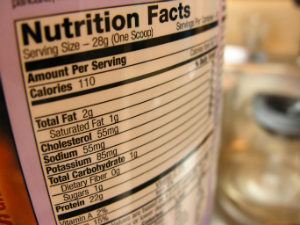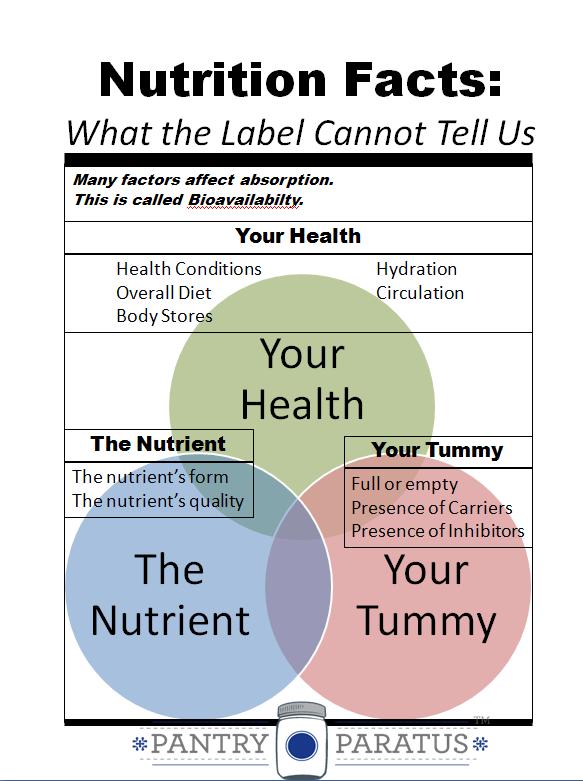But the Label Said it was Nutritious:
What are the nutrition facts not telling us?

If we only see the human body as a series of mechanical processes, we will miss out on the interconnectedness of the best parts of us—how our bodies, minds, and souls not only interplay with intricate detail but rely upon each other for strength. Poor health can follow a poor mental state, for instance. We have all experienced that thing we hated SO MUCH that our stomach literally hurt at the thought of it. Likewise, the thrill of winning the race and make you forget the pain in your legs. We have to view our bodies in a more holistic way that recognizes this interconnectedness.
Did you know the nutritional content of food is connected to itself, to you, and to your environment? Did you know your health is connected to how much nutritional value you get from your food, and not to what the nutritional facts might be for a specific food item?
When we talk about a food’s nutrition data, much nuance is lost. We see that list of nutrition facts as very black-and-white, with no room for variation based upon the individual eating the food. Absorption is the amount of the nutrient (mineral or vitamin) your body actually uses and it varies from eater to eater. For instance, arthritis affects iron absorption and diabetics are usually lacking in magnesium (Schlussel, 2004 ). Those labels do not tell you the form of the mineral or vitamin, and that can have everything do to with how available that nutrient is to your body (that is called “bioavailability”). For instance, the iron used to enrich store bought bread is not something your body can digest hardly at all (in direct opposition to the natural iron found in whole wheat). Those labels also do not allude to the relationship between that nutrient and medicines you are taking, environmental factors, or how some nutrients require other nutrients to be present for any absorption in the first place!

What affects nutrient absorption?
1) Your medications
2) Your health conditions
3) Your overall diet
4) Your body stores
5) The presence of carriers (other nutrients necessary for absorption)
6) The presence of inhibitors (some nutrients decrease absorption of others)
7) How full or empty your tummy
8) The nutrient’s form
9) The nutrient’s quality
10) Your hydration
11) Your circulation
I am sure that is not a complete list! In fact, if I missed one, be sure to leave it as a comment below this post for me.
Happy Digestion,
Chaya
Proviso:
Nothing in this blog constitutes medical advice. You should consult your own physician before making any dietary changes. Statements in this blog may or may not be congruent with current USDA or FDA guidance.
For More Reading:
Schlussel, Y. (2004). Mineral absorption and deficiency. Retrieved from http://www.thewallachfiles.com/informationcenter/mineral_absorption.html
Photos:
Nutrition Label:http://a.rgbimg.com/cache1nyyou/users/b/br/brainloc/300/mfXkKzo.jpg
Pictograph is property of Pantry Paratus.

Love this! The longer I’m on this getting healthy journey, the more I realize how one-size-fits-all diets and foods just really aren’t realistic. Every body is different, and finding what works best for your own body…not following the latest fads or expert advice, takes time and trial and error many times. How often do we get frustrated because a particular diet that your friend lost 50 pounds isn’t working for us? And then you have people regurgitating what they read online about how no one should follow paleo or how everyone should be vegan. There is simply not ONE way of eating that works for every single body on the planet. We’re all created uniquely!
Absolutely right! And even our OWN bodies change over time; our son’s corn allergy–after 5 years of complete omission–is hardly affecting him (with accidental ingestion). We have to be willing to try new things, to do the occasional cleansing, and always be compassionate to others who are also on this journey.